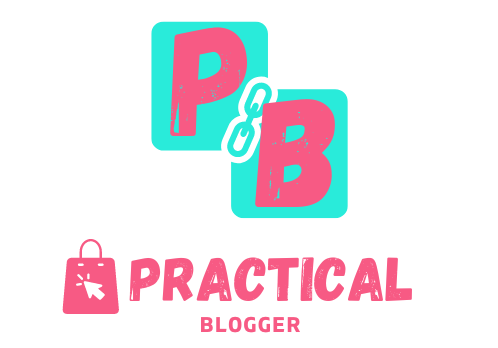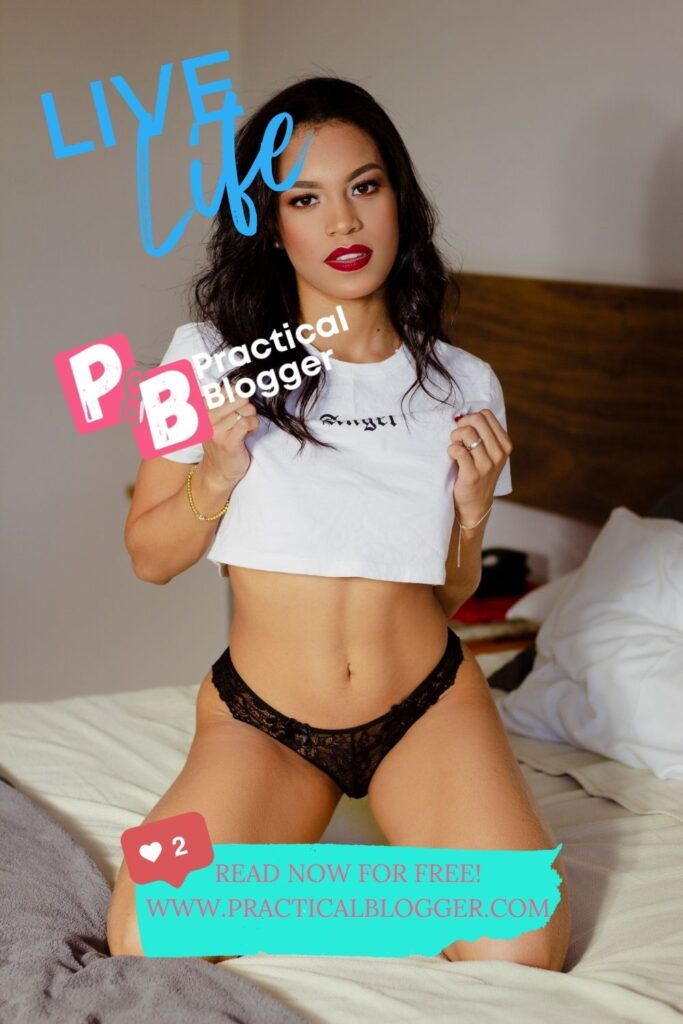Discover Lucrative Blog Monetization Strategies – Turn Your Passion into Profit with Our Comprehensive Guide! Explore Advertising, Sponsored Content, Digital Products, and more.
Blogging has come a long way since its inception as a simple online journal. Today, it has evolved into a multi-billion dollar industry, offering countless opportunities for individuals to turn their passion into profit.
Whether you’re a seasoned blogger looking to increase your earnings or a beginner just starting out, this comprehensive guide will walk you through the various monetization opportunities in blogging.
- Blog Monetization Strategies – Introduction
- 1. Advertising
- 2. Sponsored Content
- 3. Sell Digital Products
- 4. Membership and Subscription Models
- 5. Sell Physical Products
- 6. Freelance Writing and Content Creation
- 7. Consulting and Coaching
- 8. Podcasting
- 9. Events and Workshops
- 10. Donations and Crowdfunding
- Blog Monetization Strategies – Overview
- Best Content for Book Lovers from Practical Blogger!
Blog Monetization Strategies – Introduction
Blogging has become more than just a hobby for many. It’s a way to share your knowledge, interests, and experiences with the world while also generating income. However, achieving profitability in the blogosphere is not an overnight success story. It requires dedication, consistency, and a solid monetization strategy.
In this guide, we’ll explore numerous monetization opportunities available to bloggers. From traditional methods like advertising to newer and more innovative options, we’ll cover them all. Whether your blog is about travel, fashion, food, tech, or any other niche, there’s a monetization strategy that can work for you.
1. Advertising
Display Ads
Display advertising is one of the most common ways bloggers make money. By partnering with ad networks like Google AdSense, Media.net, or Ezoic, you can display targeted ads on your blog. You earn money whenever visitors click on or view these ads.
To optimize your earnings from display ads, it’s essential to focus on your blog’s traffic. More visitors mean more ad impressions and, potentially, higher earnings. Additionally, consider optimizing ad placements for better click-through rates (CTR) without harming the user experience.
Native Advertising
Native advertising seamlessly integrates ads into your blog’s content, making them look like part of your regular posts. This approach tends to be less intrusive and can lead to higher engagement and click-through rates. Platforms like Outbrain and Taboola can help you implement native ads on your blog.
However, be cautious not to overdo it. Too many native ads can annoy your readers and harm your blog’s credibility.
Affiliate Marketing
Affiliate marketing allows you to earn a commission by promoting products or services on your blog. You receive a unique affiliate link, and when readers click on it and make a purchase, you earn a percentage of the sale. Many bloggers find success with affiliate programs from Amazon Associates, ShareASale, and CJ Affiliate.
To excel in affiliate marketing, choose products or services that align with your blog’s niche and your audience’s interests. Write high-quality, informative content that genuinely helps readers make informed purchase decisions.
2. Sponsored Content
Brands are constantly looking for influencers and bloggers to promote their products or services. Sponsored content is a monetization method where you collaborate with companies to create blog posts, videos, or social media content that features their offerings. In return, you receive payment or free products/services.
To attract sponsors, focus on building a strong online presence and a loyal audience. Be transparent about sponsored content, as trust is crucial in blogging. Ensure that the products or services you endorse align with your brand and resonate with your readers.
3. Sell Digital Products
If you have expertise in a particular area, consider creating and selling digital products on your blog. These can include e-books, online courses, templates, printables, or software. Selling digital products allows you to leverage your knowledge and passion into a scalable income source.
To succeed with digital products, identify your audience’s pain points and create solutions that address them. Promote your products through blog posts, email marketing, and social media to reach a wider audience.
4. Membership and Subscription Models
A membership or subscription model can provide a steady stream of income for your blog. Offer exclusive content, resources, or perks to members who pay a monthly or annual fee. Platforms like Patreon and Substack can help you set up and manage membership programs.
To entice readers to subscribe, provide valuable content that can’t be accessed for free elsewhere. Engage with your members, respond to their feedback, and continuously provide value to retain and grow your subscriber base.
5. Sell Physical Products
If your blog niche allows for it, consider selling physical products related to your content. This could be merchandise, handcrafted items, or products that align with your blog’s theme. E-commerce platforms like Shopify or Etsy can help you set up an online store.
Before diving into physical product sales, thoroughly research your market and competition. Ensure that your products stand out and offer unique value to your audience.
6. Freelance Writing and Content Creation
Your blogging experience can open doors to freelance writing opportunities. Many businesses and publications are willing to pay for high-quality content. You can pitch articles, blog posts, or other forms of content to various websites or companies.
To excel in freelance writing, build a strong portfolio showcasing your best work from your blog. Network with potential clients and explore freelance job boards to find opportunities.
7. Consulting and Coaching
If your blog establishes you as an expert in your niche, consider offering consulting or coaching services. You can provide one-on-one or group sessions to help individuals or businesses achieve their goals in your field of expertise.
To succeed in consulting or coaching, clearly define your services and pricing. Market yourself as a knowledgeable and approachable authority in your niche.
8. Podcasting
Podcasting has gained immense popularity in recent years, and it can be a profitable endeavor. Monetization methods for podcasts include sponsorships, affiliate marketing, selling premium content, and listener donations.
To make money through podcasting, focus on creating engaging and informative content that resonates with your audience. Build a loyal listener base, and explore multiple monetization avenues to maximize your earnings.
9. Events and Workshops
If your blog has a substantial following, you can host events, webinars, or workshops related to your niche. Charge attendees for access to your expertise or exclusive content.
To succeed with events and workshops, plan them well in advance, market them effectively, and deliver exceptional value to participants.
10. Donations and Crowdfunding
Some bloggers rely on their readers’ generosity through donations and crowdfunding platforms like Patreon, Ko-fi, or Buy Me a Coffee. While not as consistent as other monetization methods, this can still provide supplementary income.
To encourage donations, express your appreciation for your readers, and create compelling content that motivates them to support your work financially.
Blog Monetization Strategies – Overview
Turning your passion into profit through blogging is not only possible but also achievable with the right approach. Explore these various monetization opportunities and experiment with different strategies to find what works best for your blog.
Remember that success in blogging requires dedication, patience, and a deep understanding of your niche and audience. As you continue to grow your blog and expand your income streams, you can turn your passion into a sustainable and rewarding online business.
Mastering the Art of Auto Blogging: Your Ultimate Guide to Automating Content Creation
Ultimate Guide to Blogging: Tips, Strategies, and More
11 Proven Ways to Make Money Blogging in 2023: The Ultimate Guide
10 Ways to Earn Income Through Blogging (Even If You’re Just Starting Out)
Successful Blogger: How Blogging Drives Personal and Career Growth
Turning Passion into Profit: Blog Monetization Strategies for Success
10 Benefits of Blogging: Exploring How Individuals Thrive Through Expression
Ultimate Guide to Professional SEO Services: Boost Your Online Presence
Discover the Top Blogs to Read in 2023: Your Ultimate Guide to Quality Content
Unlock Your Blog’s Potential with Free Blogger Templates: Ultimate Guide
Ultimate Guide to SEO Keyword Analysis: Unleashing the Power of Effective Keyword Research
Mastering SEO Writing: Ultimate Guide to Effective Content Optimization
Want the most updated list of best-selling books and authors? Get the most updated list of books on the Amazon Bestseller List here.
Best Content for Book Lovers from Practical Blogger!
- 23+ Best Gifts for Book Lovers
- The Best Books of 2023: A List of Must-Read Fiction and Nonfiction
- Top 10 Books on Psychology
- The Ultimate List of Books to Read: A Readers Guide
- Amazon Best Sellers: Top Selling Products on Amazon
- 10 Best Stephen King Books of All Time
- Book Review: The Psychology of Money: A Timeless Guide to Wealth and Greed
- How to Sell Books on Amazon and Make Money
- Audiobooks on Spotify: Complete Guide
- 20 Best Audiobooks on Spotify
- The New York Times Bestseller List: A Guide to the Most Popular Books in America
- Famous Writers: A List of the Most Influential and Acclaimed Authors of All Time
- 10 Most Famous Writers of All Time
- The Best Harry Potter Books: A Ranking of the Seven Books in the Series
- The 7 Best Harry Potter Books, Ranked
- 20 Famous American Authors You Should Read
- 10 Best Authors of All Time: Their Books and Why You Should Read Them
- 10 Famous Short Stories That Everyone Should Read
You might also like:
- GoHighLevel Snapshots for Sale: A Buyer’s Guide
- How to Create Snapshots in GoHighLevel to Save Time and Streamline Your Workflow
- GoHighLevel Login Tips and Tricks: The Ultimate Guide
- How to Use GoHighLevel to Grow Your Business
- How to Become a GoHighLevel Top Affiliate and Earn Passive Income
- GoHighLevel Pricing Plans: A Comprehensive Guide
- GoHighLevel Support: Get Help 24/7
- Related Reading: Why Start a Blog: Purpose and Benefits
- Related Reading: How Blogging Can Help You Discover Your Passion and Life Purpose
- Related Reading: How to Find Motivation to Start a Blog
- Related Reading: Identifying Personal and Professional Goals for Your Blog



















